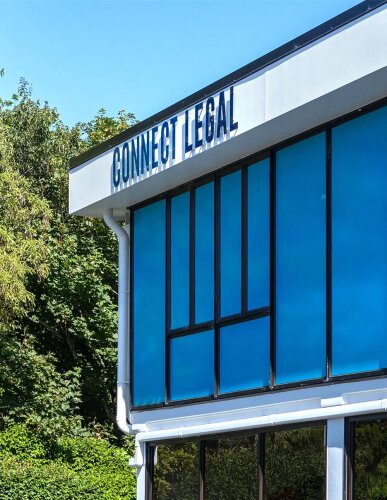Best Due Diligence Lawyers in New Plymouth
Share your needs with us, get contacted by law firms.
Free. Takes 2 min.
List of the best lawyers in New Plymouth, New Zealand
About Due Diligence Law in New Plymouth, New Zealand
Due diligence in New Plymouth, New Zealand refers to the investigative process undertaken before entering into a business or property transaction. It is a critical step that helps individuals and companies assess risks, verify information, and ensure compliance with applicable local and national laws. Whether you are considering purchasing property, investing in a business, signing a commercial contract, or undergoing a merger or acquisition, due diligence is essential for protecting your interests and avoiding unexpected liabilities.
Why You May Need a Lawyer
Engaging a lawyer for due diligence in New Plymouth is important for several reasons. Legal experts have the skills and resources to perform thorough checks and understand relevant local regulations. Common situations where people may require legal help with due diligence include:
- Buying or selling real estate property
- Purchasing a business or shares in a company
- Entering into franchising agreements
- Mergers and acquisitions
- Commercial leasing
- Obtaining financing or investment
- Undertaking large-scale contracts with suppliers or customers
- Confirming compliance with regulations and licensing
- Reviewing employment or service agreements during a business purchase
- Examining intellectual property rights or environmental obligations
A lawyer ensures all relevant legal matters are identified and can negotiate and draft agreements to minimise your risk. Their experience can save you from costly legal problems in the future.
Local Laws Overview
New Plymouth operates under the legal framework of New Zealand but has local regulations and property specifics that require attention during the due diligence process. Key aspects of local laws relevant to due diligence include:
- Land Ownership and Use: The Land Transfer Act and Resource Management Act govern how property is owned, transferred, and used in New Plymouth. Local zoning laws and district plans set by New Plymouth District Council affect property developments and land use.
- Business Compliance: New Zealand’s Companies Act and local business licensing requirements must be met. Checking for outstanding debts, compliance orders, and current business registrations is crucial.
- Building and Resource Consents: All buildings and renovations must comply with the Building Act and secure the appropriate consents from the council. Non-compliance can result in costly penalties or orders to remedy issues.
- Environmental Regulations: Environmental assessments may be required under local bylaws and national laws, especially for industrial sites or where there are suspected contaminants.
- Maori Land and Treaty Issues: Some properties or developments may be subject to Treaty of Waitangi settlements or specific Maori land ownership agreements.
It’s important to work with a lawyer who understands both New Zealand’s national requirements and local New Plymouth regulations when conducting due diligence.
Frequently Asked Questions
What does due diligence involve in New Plymouth?
Due diligence typically includes obtaining and reviewing legal documents, title searches, checking zoning and land use restrictions, reviewing contracts and leases, confirming financial and tax status, and ensuring regulatory compliance.
How long does the due diligence process take?
The timeframe depends on the complexity of the transaction. Simple property purchases may take a few days to a couple of weeks, while business acquisitions or commercial deals could require several weeks or longer.
Can I perform due diligence myself?
While you can undertake some preliminary checks, it is highly recommended to engage a lawyer or a professional advisor to ensure a comprehensive and legally sound process.
What are the risks of skipping due diligence?
Risks include acquiring hidden debts, legal or regulatory issues, property defects, or entering contracts with unfavourable terms that could result in significant financial loss.
How much does due diligence cost?
Costs vary depending on the scope of work. Legal fees may be fixed or hourly. It is best to discuss expected costs with your lawyer at the outset.
What information will I need to provide my lawyer?
Provide all relevant documents about the property or business, information about the parties involved, contracts, financial statements, and any known issues or concerns.
Are there any local New Plymouth considerations for due diligence?
Yes. You should check for local planning restrictions, earthquake-prone building status, council rates and levies, and compliance with district plans.
Is environmental due diligence required?
For some properties or businesses, especially industrial or rural sites, environmental checks are strongly advised to prevent liability for contamination or regulatory breaches.
What happens if due diligence reveals a problem?
Your lawyer can help you renegotiate, request remedies, or exit the transaction if problems are discovered, depending on your agreement’s terms.
Can due diligence be a condition in a sale contract?
Yes. Including a due diligence condition is common practice and allows you to back out or renegotiate if significant issues are identified during the due diligence period.
Additional Resources
If you need further help or wish to gather more information, these resources are useful:
- New Plymouth District Council for local property records, building consents, zoning, and rates information
- Land Information New Zealand for property titles and land ownership
- Companies Office for business structure and compliance checks
- Ministry of Business, Innovation and Employment for business and employment regulations
- Taranaki Chamber of Commerce for local business support and guidance
- Environmental Protection Authority for environmental due diligence
- Qualified local lawyers or law firms with experience in due diligence
Next Steps
If you are considering a transaction that requires due diligence in New Plymouth, New Zealand, here is how to proceed:
- Define your goals and what you want to achieve from the transaction.
- Gather all initial documents and information relevant to your intended purchase or agreement.
- Contact a qualified local lawyer who is experienced in due diligence matters for a consultation.
- Discuss with your legal advisor the key issues, risks, and scope of the due diligence required.
- Allow your lawyer to conduct necessary searches, reviews, and negotiations on your behalf.
- Review the findings and recommendations with your lawyer before making final decisions.
- Take action based on the outcomes, which may include proceeding, renegotiating, or withdrawing from the transaction.
Navigating due diligence can be complex, but with professional legal support, you increase your chances of a successful and secure outcome.
Lawzana helps you find the best lawyers and law firms in New Plymouth through a curated and pre-screened list of qualified legal professionals. Our platform offers rankings and detailed profiles of attorneys and law firms, allowing you to compare based on practice areas, including Due Diligence, experience, and client feedback.
Each profile includes a description of the firm's areas of practice, client reviews, team members and partners, year of establishment, spoken languages, office locations, contact information, social media presence, and any published articles or resources. Most firms on our platform speak English and are experienced in both local and international legal matters.
Get a quote from top-rated law firms in New Plymouth, New Zealand — quickly, securely, and without unnecessary hassle.
Disclaimer:
The information provided on this page is for general informational purposes only and does not constitute legal advice. While we strive to ensure the accuracy and relevance of the content, legal information may change over time, and interpretations of the law can vary. You should always consult with a qualified legal professional for advice specific to your situation.
We disclaim all liability for actions taken or not taken based on the content of this page. If you believe any information is incorrect or outdated, please contact us, and we will review and update it where appropriate.










